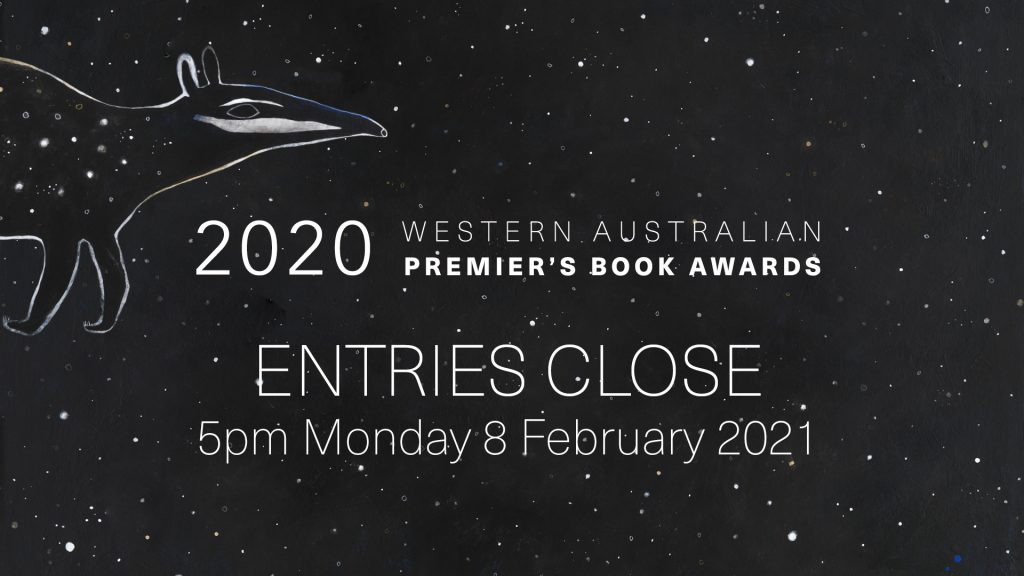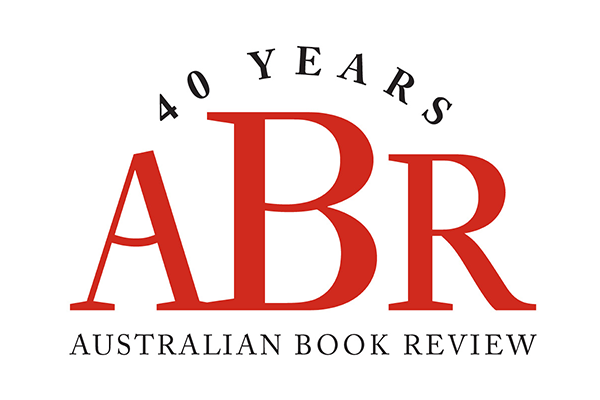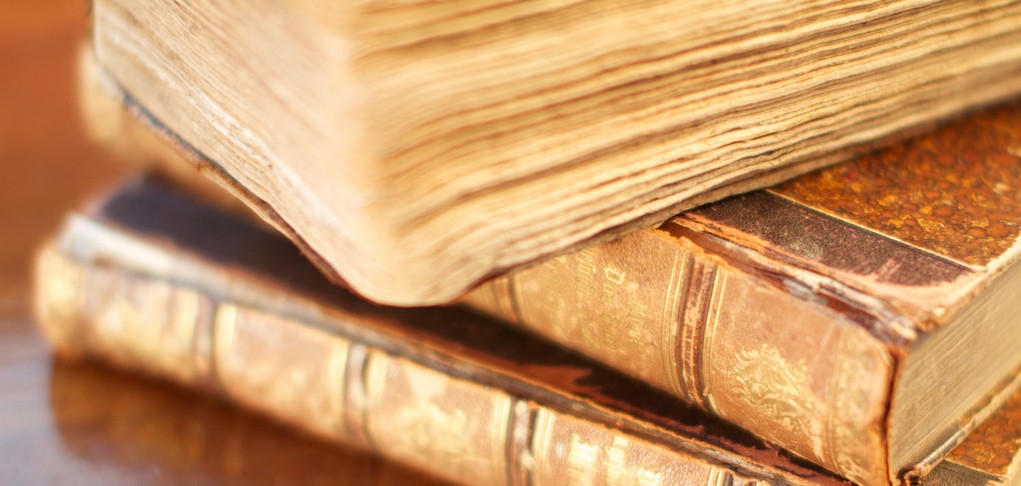Western Australian Premier’s Book Awards 2021

About
Arts Law regularly reviews the terms and conditions of competitions and rates them out of five stars. Our review looks broadly at the terms and conditions of a competition. In particular, we look closely at how a competition deals with an entrant’s copyright and moral rights and consider this in light of the prize. Entrants should always consider the possible profile-raising which may result from being a finalist or winner.
By accepting the terms and conditions of a competition, entrants should be aware that they may be entering a legally binding contract.
For more information, see our free information sheet on competition conditions. Artists are welcome to contact Arts Law for legal advice on the terms of a competition. We also invite competition organisers to contact Arts Law for best practice assistance to make their terms and conditions fairer for artists.
Please note: Prior to February 2018, Arts Law’s rated out of five stars only the terms of a competition which dealt with copyright and moral rights. Arts Law’s competition reviews are now more holistic, such that our rating out of five stars now reflects a broad review of all the terms and conditions of the competition. For more information see our website.
Review
This month, Arts Law has reviewed the terms and conditions of the following three categories of the Western Australian Premier’s Book Awards:
- The Premier’s Prize for an Emerging Writer ($15,000)
For the first published work of prose, poetry or narrative nonfiction, in any genre, by an author or authors residing in Western Australia.
Read the terms and conditions of this category here.
- The Premier’s Prize for Writing for Children ($15,000)
For a work of prose, poetry or narrative nonfiction written for children (0 to 12 years of age), in any genre, by an author or authors residing in Western Australia.
Read the terms and conditions of this category here.
- The Western Australian Writer’s Fellowship ($60,000)
The Fellowship is designed to assist a Western Australian writer, of any style or genre, to develop their writing practice and give them the time to create new work in a one-year time period.
Read the terms and conditions of this category here.
The deadline for entries is 8 February 2021.
Arts Law has rated the terms and conditions of each of th the above categories 5 out of 5 stars. Reviewed by Roxanne Lorenz, Solicitor at Arts Law.

We congratulate the State Library of Western Australia (SLWA), the facilitator of the Western Australian Premier’s Book Awards. It engaged with Arts Law to improve the terms and conditions resulting in the 5 out of 5-star ratings
We are delighted that SLWA took on board our suggestions on how to tweak their terms and conditions to clarify how an entrant’s copyright and moral rights are dealt with, as well as implementing our other suggestions discussed below. As a result, these terms and conditions are now very clear and fair for the entrants. Premier’s book awards held in other states and territories can look to these terms and conditions as a best practice example.
The Premier’s Prize for an Emerging Writer (‘Emerging Writer Prize’) and the Premier’s Prize for Writing for Children (‘Writing for Children Prize’) both have a generous cash prize of $15,000 each. To be eligible to enter these prizes, the author must have published a book between 1 January and 31 December 2020. Self-published books are eligible but must have an ISBN. It is great to see on its website that SLWA has also consulted with the Western Australian writing sector about industry practices for acknowledgement. Consequently, the terms state that if the winning work is co-written, or a translated or illustrated work, then the prize money will be split evenly amongst the contributors. It is very fair to acknowledge that all creators and authors have had a substantial contribution to a work.
The Western Australian Writer’s Fellowship (‘the Fellowship’) is open to Western Australian writers. The very generous prize money of $60,000 can be used by the winner for the creation of new work, research, development and experimentation, and residencies and travel. Importantly, the winner is not required to deliver a completed work as part of the Fellowship, which allows the writer flexibility in how they use the Fellowship to support their career.
Copyright and moral rights, what do you need to be aware of when the Government is affiliated with a competition, prize, or award?
When entering a competition, it is always important for entrants to understand what permissions you might be giving to the organiser to use your work. Copyright gives the creator of the work the right to control how, when and where it is reproduced.
Under the Copyright Act 1968 (‘the Copyright Act’), authors automatically own copyright in their work. However, there are some exceptions to this default position. For example, there are certain provisions that allow the Government to become owners of copyright material where it has been ‘created by’, or ‘under the direction or control’ of the Government. These provisions may also extend to state government entities and agencies.
For peace of mind, when entering competitions and awards that have been facilitated by a Government department, entity, or agency, it is always best to look at what the terms say about copyright. If it says nothing at all, then the above ownership provisions might apply such the Government entity might be the owner of the copyright. These provisions around Government ownership of copyright can be altered or clarified by the terms and conditions of a competition.
On Arts Law’s suggestion, SLWA have made it very clear in their terms and conditions that the author will retain the copyright in their work. This is very important to clarify, particularly for the Fellowship, as the entry materials and subsequent funding of the activities could deem any resulting copyright works as being created ‘under the direction or control’ of the Government. SLWA also stipulate that they will not reproduce the work without permission from the author, except for uses permitted by the Copyright Act. This is fair because the Copyright Act provides some limited exceptions for libraries to reproduce works for purposes such as preservation, archiving and to make works accessible for people with disability. However, if SLWA wants to make further uses of the work beyond these purposes permitted by the Copyright Act, they will need permission from the author.
In addition, authors have moral rights meaning there is an obligation for an author to be attributed and to have their work treated with integrity. SLWA have addressed moral rights by making clear that these rights will be respected.
Anything else?
Sometimes prizes and competitions will include something that states that the organiser can change the terms and conditions as they wish, and that the entrant acknowledges this by entering the competition. This can be problematic for entrants as they might not know exactly what they have signed up for.
While the terms and conditions of these prizes state they can be changed both before and after the closing date, it was great that SLWA took on board Arts Law’s suggestion that they will notify the entrants via email if there are any major changes that will affect the entry or the outcome.
In conclusion
In conclusion, the terms and conditions of the awards are very fair – there are generous prizes it is a great opportunity for authors for promoting themselves and their work, while retaining their copyright and keeping their options open for future publication opportunities. Indeed, unlike other competitions, the organiser is not asking for a licence to reproduce the works in return for the prize money. We congratulate SLWA on its positive response to working with Arts Law to ensure its terms and conditions are best practice and achieving a high rating.
You can lodge a query with us here if you would like to obtain advice from Arts Law about this competition.
Further Information
Please email us at [email protected] to tell us about any competitions or prizes you think we should check.
See more about Arts Law’s campaign to improve competition terms and conditions in the Prizes and Competitions section.




